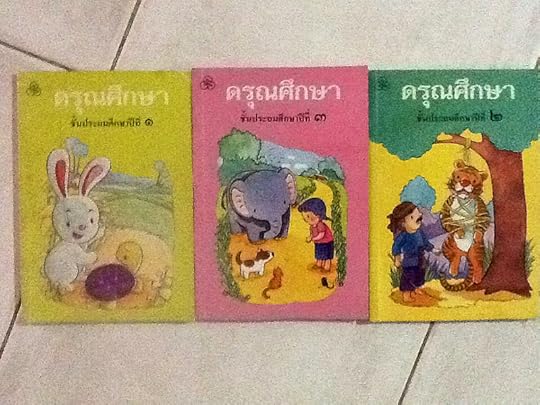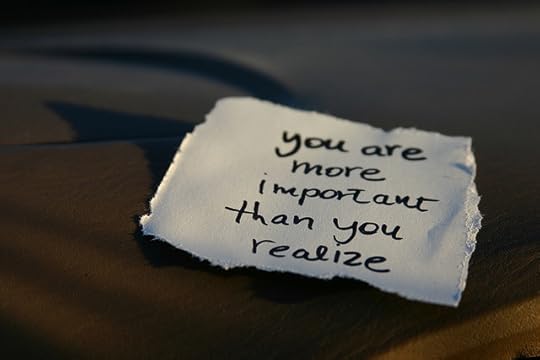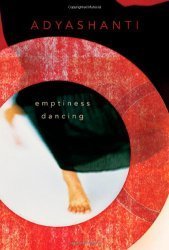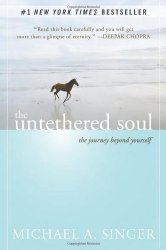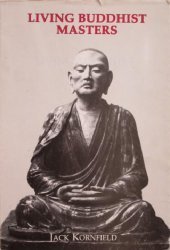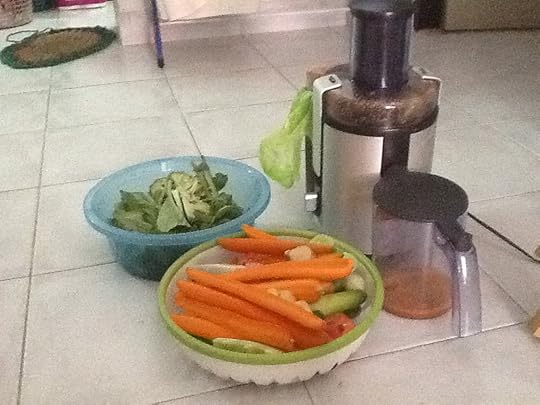Paul Garrigan's Blog, page 19
June 7, 2014
5 Improvements in My Approach to Learning Thai
I am now at the end of week three of my six month challenge to become fluent in Thai. The most surprising thing so far is how much of my time is spent going back over the fundamentals. I’ve even had to revisit the Thai alphabet because I’ve been reproducing some of these sounds in the wrong parts of my mouth.
Despite my need to focus so much on the basics at the moment, I don’t feel like I’m back at square one. This work is causing a ripple effect because it is allowing my brain to make connections with the stuff I’ve learned in the past. Things are just starting to fall into place, and there have been a few times recently when I’ve enjoyed the wonderful feeling of ‘I’m getting this’.
I hit a language plateau in the Thai language about 10 years ago. My failure to fully master the basics meant I couldn’t make any further progress beyond the intermediate level. I picked up lots of additional vocabulary after, but if I’m honest, this only improved my ability to read – it did nothing to help me communicate better.
A decade is a long time to be stuck, so I’m so grateful to still have a passion to learn Thai. I have no difficulty understanding why some of expats just give up. It is so easy to interpret lack of progress as evidence of an inability to learn the language.
I’m confident that I’ve found the key for breaking through the barrier between intermediate and fluent Thai. It is a long road ahead for me but this isn’t so bad because at least I know I’m now going in the right direction. There are six improvements in my approach to learning Thai that are responsible for this breakthrough:
1. I No Longer Feel Ashamed about My Weaknesses in Thai
Anyone with more than a basic level of Thai is going to recognize there are obvious problems with the way I speak the language. In the past, I felt embarrassed about this, and it meant I tried to hide my deficiencies. I became so focused on protecting my ego that I avoided any situation where I might actually learn something.
I’m grateful that Stuart Jay Raj used me as an example in one of his recent videos. It feels good to openly admit that this is the level I’m at now, and I need some help to progress. There is nothing embarrassing about wanting to improve, but it does require being open about what needs to be improved. In future, I’m going to be as honest as I can be about my weaknesses in Thai – not only to other people but also to myself.
2. I Have a Goal I Feel Passionate About
I make addiction recovery videos and I put these on YouTube. My efforts are a bit amateurish, but I enjoy it as a hobby. It is my goal that within one year, I’ll be putting out videos in the Thai language as well as the ones in English. This is my dream, and I’m passionate about making it happen. There might not be even one Thai person interested in what I have to say, but I know it will give me so much pleasure to do this.
My motives for learning Thai in the past have always been a bit vague. Without something solid to aim for, my approach was haphazard and completely undisciplined. It is hardly surprising I didn’t get anywhere because I didn’t have an actual goal. I now have a clear destination for my studies, and this is going to help me focus and stay committed.
3. I Have Enough Humility to Learn
I see myself as a student of the Thai language, and this means my job is to learn. I don’t need to worry about protecting my ego or trying to impress other people, and it’s definitely not my job to teach – although, I’m willing to share anything I learn along the way. I believe humility may be more important when it comes to learning a language than any natural talent.
4. I’ve Raised My Expectations
I didn’t learn to drive a car until I was 37 years of age – I seriously used to look people who could drive as having an almost magical ability. I’ve felt the same type of awe around westerners who can speak fluent Thai. I didn’t think it would ever be possible for me to be like them, so I set my goals much lower.
Working with Stuart Jay Raj has helped me see there is nothing magical about speaking Thai. It’s just a case of getting the muscles around the mouth to perform the right actions. It does take practice, hard work, and persistence, but I’ve raised my expectations – I now aim to speak Thai like a Thai.
5. I’m Enjoying the Process of Improving My Thai
I do not view this period of intensive learning as something I need to get out of the way so I can get what I want. I look forward to studying each day because it’s just so exciting and rewarding in itself. I love it when I remember to use a new word in conversation, and I experience a childish glee when this same word can help me make sense of a paragraph of writing that would have previously baffled me – it’s better than any video game. My son loves correcting my bad Thai, and it is something fun we can do together. I’m getting as much more from this experience of learning Thai than I will from achieving the goal (the goal is only there to give shape to the process).
Here are the two earlier posts in this series:
Week 1- My Quest to Speak Fluent Thai in Six Months
Week 2 -Creating the Right Mental Conditions for Learning Thai
Week 3- Maybe Just Getting Out There and Speaking Thai is Not Enough
June 5, 2014
Shame is the Glue that Keeps Us Stuck in Addiction
In this video and podcast, I discuss how shame was more responsible for my drinking than the physical addiction. Press play to watch the video, and you’ll find the podcast below:
Press play to listen to the podcast version of this episode:
June 3, 2014
Escape Alcoholism by Being Kind to Yourself
It sometimes felt as if there was a little man living inside my brain, and he loved it when I messed up. I tried to quit alcohol hundreds of times, but this nasty gremlin was always there waiting to gloat over my lasted failure:
“You are such a loser”
“You are so weak”
“You have let everyone down”
“I knew you would fail”
Even when things were going relatively well for me, this inner-tormentor was there waiting to piss on my parade. This voice had the opposite effect of a life-coach because it reduced my self-esteem, tried to convince me to accept the unacceptable, and generally just sabotaged any effort I made to improve my life.
My Brain Was Not the Enemy
It felt convenient to think of this negativity in my brain as my enemy – I heard people in recovery groups refer to this voice as John Barleycorn. The problem with thinking this way was I became convinced that my own brain was working against me, and I felt powerless to do anything about it. I’d make the decision to improve my life by giving up drinking, but this voice would weaken my resolve and make me doubt my own abilities.
I eventually realized that I was never going to win a battle against my own brain. So instead of try to fight this inner-voice, I tried my best to understand it. I began to see that my mind was full of all sorts of thoughts, and these were triggered by my environment, mood, and current situation. These thoughts were like clouds passing through the sky and most of the time they just came and went without me hardly noticing. The problem happened when I became obsessed with certain thoughts or I tried to resist them.
It turned out there was no John Barleycorn living inside of my brain. What was really happening was I tended to focus more on negative thoughts rather than positive ones. It wasn’t that my brain was working against me, but that it was offering me a banquet of thoughts each day, and I was picking the shittiest options.
My inner-tormentor started to disappear when I became choosier about the thoughts I paid attention to. I consciously replaced that negative voice with ones that were kind and supportive. The results were almost instant and they were amazing. I began to naturally focus on the more positive thoughts and my life became so much easier and happier after that.
Escape Alcoholism by Being Kind to Yourself
Giving up alcohol is going to be much harder if you pay too much attention to negative thoughts. You need to choose to be kinder to yourself because you need and deserve this support. Working with your brain should be much easier than trying to fight it.
May 31, 2014
Maybe Just Getting Out There and Speaking Thai is Not Enough
Week Two of My Challenge to Speak Fluent Thai in Six Months
I first started messing around with the guitar over 30 years ago, but I still can’t manage to even play one song well. I know lots of chords, and I can move my fingers between them effortlessly, but I just never bothered to learn how to strum properly. This means that no matter what I play, it sounds like this – ‘dtum,dtum,dtum,dtum’.
I’m a fan of Malcolm Gladwell’s idea that doing something for 10,000 hours is going to make me an expert. This all sounds reasonable and fair – if I put the effort in, I’ll reap the rewards. The problem is that things aren’t that simple in reality because it isn’t just the quantity of hours that’s important but also what I do with that time.
I’ve already spent thousands of hours playing guitar, and I fear that another few thousand hours isn’t going to make much difference. There is obviously something wrong with my learning approach, and investing more time into this approach isn’t going to solve the problem – it just means I’ll get better at playing ‘dtum,dtum,dtum,dtum’ which isn’t what I’m trying to achieve. If I want to make any further progress on guitar, I need to learn how to strum properly.
From Playing Guitar to Learning Thai
There is a lot to be said for just getting out there and speaking Thai with local people, but I don’t think this is enough to guarantee fluency – or at least, I know it hasn’t been for me. I’ve become a bit more introverted in recent years, but I wasn’t always this way. During my first few years living in Thailand, I was extreme alcohol-enthusiast, and you couldn’t shut me up. I wouldn’t be surprised if some of my Thai neighbors actually hid in the mud when they saw me skipping through the rice fields with my trusty bottle of Singha beer by my side.
I lived in a Thai village where nobody could speak English, except for me wife, so I was definitely trying to communicate in the local language. I also turned my front room into a free-bar, so I was never short of neighbors looking to chat – my vocabulary improved, but my ability to speak Thai didn’t.
The problem with me just getting out there and speaking Thai was these encounters started to really knock my confidence and enthusiasm. When I tried anything more than simple phrases, the ones the local people were used to hearing Farang say, I’d be met with blank stares. I became increasingly frustrated with the inability of these people to understand their own language, so I started speaking less and less. I didn’t appreciate that there were fundamental issues with my Thai skills they were preventing me from making progress – just like my inability to strum properly halted my progress on the guitar.
I did spend time trying to mimic the Thai sounds, but I just wasn’t skilled enough to appreciate the difference between what I was saying and the right pronunciation. My way of speaking sounded reasonably close to native Thai to my ears, and I felt resentful because it felt like Thai people were just being overly fussy. It is only really since I’ve started getting help from Stuart Jay Raj that I’m really able to recognize there is a huge difference between the way I think that Thai words should sound and the way they actually sound.
Getting out there and speaking Thai is a must, but there also needs to be a strong focus on getting the fundamentals sorted out. If local people are struggling to understand what I’m saying, I need to assume the problem is with me and not with them.
Week Two of My Six Month Challenge to Speak Thai Fluently
I’ve been using Cracking Thai Fundamentals to help me learn how to strum in Thai. Stuart Jay Raj is making sure I get the most out of the program by giving me Skype lessons – he is a fantastic teacher and very patient. This input is already leading to significant improvements in my ability to reproduce Thai sounds. Here is a video Stu made of our progress so far:
There are parts of this video that make me cringe a little, but I don’t mind sounding bad now because I’m convinced I’ll improve significantly over the next few months. It is a great help to have this record of our lesson, and it’s really motivating me to get the pronunciation right – I hope it inspires other people too.
The two sentences I’ve been working on mostly this week with Stu were:
เมื่อก่อนผมเคยทำงานเป็นพยาบาลแต่ตอนนี้ผมทำงานนักเขียนไส้แห้ง
(I used to be a nurse but now I’m a struggling writer)
ผมมาจากประเทศไอร์แลนด์
(I come from Ireland)
I’ve used the tools in Cracking Thai fundamentals to help me achieve accurate pronunciation. I can now say each word correctly on its own, but the craziness happens when I try to put everything together in a sentence – especially where I’m speaking at normal speed. It sort of seems like as soon as I sort out one problem, another one pops up. It took me hundreds of attempts to pronounce แต่ (dtee) in the first sentence correctly (I use my wife and son as judges), but then I stared messing up the word ทำ (tam).
To make things easier, I’ve recorded my wife saying these lines, and I repeat them along with her – I think they call this shadowing (I heard somebody mention this technique on Farang Can Learn Thai). This has turned out to be an excellent strategy, and I can now say these sentences correctly without the aid of the recording most of the time. I’ll keep on drilling them until I get them right every time.
Getting these two sentences reasonably correct mightn’t sound like much of an achievement, given that there must be another eight billion possible sentences (I just made that number up) to work on. The thing is that all of the tones are in there, and so are some of the consonants and vowel sounds I’ve been struggling with most. If I can really take control of these two sentences, I’m sure it is going to start impacting my ability to accurately reproduce other sentences too.
I’ve also been using Stu’s methods alongside other Thai resources. I already know all of the vocabulary in the Pimsleur program, but I’m going back over this, so I can try to get each word closer to the Thai sound. I’m also using Cracking Thai Fundamentals with BYKI flashcards so that any new vocabulary is going to be absorbed with the right sound.
My Daily Routine for Learning Thai
I’m continuing to spend at least six hours every day learning Thai. My current routine is:
05:00 – I read Thai for about half an hour. I’m using the Ookbee app to download eBooks and Thai magazines on to my iPad (there is also a similar app from B2S and Asia Books). I’ve subscribed to ขายหัวเราะ because it’s an easy read first thing in the morning. The really nice thing about these eBook apps is that it is possible to download free book samples.
05:30 to 06:00 – I do my morning exercise (jump rope) while watching Thai morning TV.
15:30 to 16:30 - I exercise (steps) while speaking along to Pimsleur Thai – I have Cracking Thai Fundamentals open on my computer, so I can check any sound I’m unsure about
16:30 to 18:00 – Thai TV (usually the travel channel) while I eat my dinner, and I also do some more reading. I sometimes go for a walk with my wife and son around our village and make an effort to speak to the neighbors (I’m still working on this – I’ve been a bit unsociable up to now, so people aren’t exactly going out of their way to be sociable with me).
18:00 to 20:00 – At the moment, I spend this time focused on the modules in the Cracking Thai Fundamentals course or working with Stu’s Thai Bites
20:00 to 20:30 – BYKI Flash Cards for building my vocabulary
20:30 to 21:00 – Drilling Thai sentences using shadowing – I also drill sentences at other times during the day
21:00 + I watch at least an hour of Thai TV on my iPad in bed.
You’ve probably noticed that at the moment, I’m not doing much in the way of ‘just getting out there and speaking Thai’. I am making more of an effort to socialize– for example, I now go in and wait for my son in his school rather than just staying in the car. Once I crack the fundamentals, I’m sure the amount of ‘getting out there and just speaking Thai’ will increase.
This challenge started out as a crazy desperate idea, but I’ve blown away by how much other people have been supporting me and advising me on how to make it happen. Thanks a million.
Here are the two earlier posts in this series:
My Quest to Speak Fluent Thai in Six Months
Creating the Right Mental Conditions for Learning Thai
May 27, 2014
If You Do Not Drink My Magical Moon Juice, You Are Not Serious About Quitting Alcohol
In this video and podcast, I discuss why the suggestion that ‘anyone who is serious about quitting alcohol needs to go to AA’ is unhelpful. It would be a bit like me saying that if you do not drink my magical moon juice, you are not serious about quitting alcohol. Press play to watch the video:
Press play to listen to the podcast:
May 24, 2014
Creating the Right Mental Conditions for Learning Thai
One of the toughest obstacles I’m facing in my mission to become fluent in Thai is my introversion. I feel uncomfortable in social situations because of my habit of being overly focused on my own inner-dialogue (‘does she like me?’, ‘am I talking too much?’…). I walk away from most conversations, even in my native language, feeling like I’ve said the wrong thing, so it is hardly surprising I feel reluctant about speaking in Thai.
A good example of how my inner-chatter gets in the way of my ability to speak Thai happened last Wednesday during a Skype call with Stuart Jay Raj (I’ll be talking more about Stu below). He asked me to speak in Thai and tell him about my life. I’d been expecting this request, but it turned out to be a surprisingly nerve-wrecking challenge because of my negative internal dialogue which had gone into overdrive – “I bet he doesn’t believe I’ve spent years learning Thai’, ‘he thinks I’m an idiot”, and ‘he’s going to tell me I’ve zero talent for foreign languages’.
This negative chatter not only reduces my motivation to speak, but it also interferes with communication because I’m trying to operate in two languages at the same time – maybe it wouldn’t be so bad if my inner-dialogue was in Thai? It is clear to me that I need to stop this negative soundtrack if I am to have any hope of becoming fluent in six months.
How to Deal with a Negative Soundtrack in the Mind
Four years ago, I needed to go back to Ireland to do some promotional work. My publisher (I’m not a particularly successful book writer, or anything, so using the words ‘my publisher’ here might sound a bit delusional) had arranged for me to go on some radio and TV shows and give a public talk. I felt a bit like Stephen King right up until I gave my first radio interview. It turned out to be a total disaster. I muttered throughout, and I felt so nervous I couldn’t remember anything I’d written in my book (something of an accomplishment considering it was a memoir).
I felt so embarrassed after that first interview, but I’d barely scratched the surface of my humiliation. I’d been booked to appear on the most popular breakfast show in Ireland, and the producer just wanted to chat with me beforehand (just a formality). We talked on the phone and my muttering and spluttering was so bad that he decided to cancel the interview. I felt devastated and the publisher was angry because a lot of effort had gone into getting plenty of promotion for my book release.
I remember having a long talk with the publisher on the phone late into the night. We practiced interview techniques, but it just wasn’t happening. I still had 14 radio interviews (one of them where I’d be there for two hours), a TV show, and a public talk to go. I just wanted to run away, but I went for a three-hour hike instead. As I walked, my sense of panic started to settle down, and I was able to start identify the reason I was fucking up so badly – the problem was I focused too much on my own inner-dialogue.
I did much better with my next radio interview. I was able to stop my inner mental-chatter and just stay focused on my environment – I didn’t even make an effort to think about what I was going to say beforehand. Words just started to appear like magic, and by my forth interview, I actually felt impressed by my own answers to questions (wow – that sounded good). By the time of my TV interview (you can see this here), I felt completely at ease being interviewed.
Speak Thai without the Mental Chatter
If I stop the mental chit-chat, and just stay focused on the present moment, my ability to speak Thai improves significantly. The words I want to say just seem to appear without me having to put as much effort into it. I usually anchor myself initially by focusing my attention on an area around my chest (I also do this when trying to wai Thai people because it makes me more mindful of the gesture). If I can get more into this habit of stopping the mental chatter, and bringing my full focus to the present moment, I’m sure I’ll be able to overcome my fear of talking in Thai.
I’ve also found that this ability to stop the inner-dialogue improves my ability to learn Thai in other ways too. It means that if I’m listening to audio, or reading a Thai book, I absorb far more because my brain isn’t operating in two languages at once. I used to believe that by just having something in the Thai language playing in the background, it would somehow enter my subconscious, and allow me to pick up the language effortlessly, but I now suspect this is fanciful nonsense that gives false comfort to lazy people. I only learn effectively by giving my full attention to what I’m doing and that requires being fully present in the moment.
Learning to Speak Fluent Thai in Six Months with Stuart Jay Raj
My post last week about my plan to become fluent in Thai within six months got a wonderful response. Thanks to Catherine from Women Learning Thai and everyone else who took the time to give me support and advice. One of the most exciting developments was that Stuart Jay Raj offered to help me achieve my goal. He is a polyglot who speaks Thai like a native, and he has promised to help me to the same.
I’ve using his Cracking Thai Fundamentals Course to improve my ability to accurately reproduce Thai sounds. During our chat, it became obvious to Stu that I still often rely on English sounds when producing Thai words, and this is why I sort of sound like an Irish guy speaking Thai (Irishthai?). I’ve only been doing using his stuff for a few days, but it is making a huge difference to the way I speak already (Oa is even impressed). I’m now starting to really understand what Thai people are doing with their lips, tongue, and throat when speaking, and it’s completely changing my approach to the language (I’ll do a proper review of Stu’s course in the future because it’s ‘frickin’ amazing).
I’m almost at the end of my first week of intensive Thai. I’m managing to set aside about six hours per day, and I’m loving every second of it. All the excitement I had when first starting to learn this language 13 years ago is back. I did plan on using a whole bunch of resources from the beginning, but I’m so absorbed in the Cracking Thai Fundamentals course that I’m spending about 80 per cent of my time on that at the moment (my guess is that it is time well spent).
Is Becoming Fluent in Six Months a Reasonable Goal?
My post on moving from intermediate Thai to fluency in six months generated some wonderful comments on social media. I’d like to thank everyone who replied. Some people did feel that my goal is overambitious, and I do understand this argument – my brain has already come up with a million reasons for why I won’t be able to do it. The thing is that I do want to stick to this goal because it is only by setting myself tough challenges that I can discover my potential. I’m going to do my very best to become fluent in six months – I’m not interested in why I can’t do it, I only want to know how I can do it.
I also found a fantastic Facebook group for any interested in learning Thai called Farang Can Learn Thai
May 21, 2014
Book Review – Natural Rest for Addiction by Scott Kiloby
I can now see my years of alcohol abuse were a symptom and not a cause of my suffering. I drank because I didn’t have a better way of coping with my feelings of alienation in life. I desperately yearned for something that would fill the ‘hole in my soul’, and I never considered the possibility this yearning was the actual source of my suffering.
“This is the very definition of seeking—to push away or cover up what’s actually appearing in favor of looking for something else that we think should be appearing.”
Scott Kiloby
Natural Rest for Addiction is a wonderful book that gives clear answers for not only why we engage in this self-destructive behavior but also how we can stop doing it. Scott Kiloby’s solution isn’t so much to treat the symptoms of our misery, but to dig right down to the source of them. I’ve been waiting for years for somebody to write a book like this, and there were times while reading it that I literally cheered.
Addiction as a Form of Seeking
I view my own alcohol addiction as an overreaction to a problem that never existed. I made desperate attempts to remedy my suffering only to discover it was this seeking that was causing the pain. It took me years of discomfort to come to this realization, yet Scott Kiloby explains this whole process so clearly – addiction and seeking are basically the same thing.
“Do you see the vicious cycle of seeking? It’s the very thought that the future holds our fulfillment that makes the present moment feel as if it’s lacking.”
Scott Kiloby
The reason I struggled for so long to break free of addiction was my habit of replacing one form of seeking with another. I’d stop drinking and become obsessed with personal development or spirituality – basically anything that promised to deliver something better in the future. I just didn’t understand it was this urge to seek that was the real source of my misery, and that any effective solution would need to put an end to this seeking behavior.
Natural Rest
I experienced a temporary break from my seeking urges during an intensive meditation retreat eleven years ago. I drank again soon afterwards, but this experienced opened my mind to the possibility of real mental freedom. Afterwards, I became obsessed with reproducing the wonderful state, so it became a new type of seeking. It took me years to comprehend the peace was always there waiting for me in the present moment.
Scott Kiloby describes how natural rest “…is found in the present moment—a place where we’re not emphasizing or obsessing on our thoughts”. When we are just experience right now without all that mental-chatter, we discover something truly wonderful, “…by resting repeatedly into the present moment, we can begin to find what we’re seeking.” It turns out that the thing I’ve been trying so hard to run away from was the one thing I truly wanted.
Natural Rest Offers More Than Escape from Addiction
Natural Rest for Addiction provides a solution for those of us who wish to let go of the alcoholic identity. Scott’s approach is not going to teach you how to become a successful ‘recovering alcoholic’ because adopting this label would just be a new identity to protect. In order to be free, I needed to not only give up alcohol but also my alcoholism. Scott describes the situation beautifully when he writes:
“Identifying with labels such as “addict” and “recovering addict” can set us apart from our families and friends, making us feel special and different. This only strengthens self-centered thinking.”
If you are suffering due to any type of seeking behavior, you may find the answer you are looking for in Natural Rest for Addiction. Scott also suggests that anyone interested in this method should join a ‘natural rest’ group – they have online meetings as well.
You can find out more about Scott’s methods by visiting his website Natural rest for Addiction
May 16, 2014
My Quest to Speak Fluent Thai in Six Months
I always experience a twinge of guilt when people ask me about my level of fluency in Thai. I’ve lived in the country for thirteen years, so it is embarrassing to admit I’m still not fluent. There have been periods when I’ve put in the hours to learn the language. I can read Thai, and I’ve got a reasonably large vocabulary, but I just don’t like talking. My goal over the next six months is to rectify this situation.
The Need to Speak Thai
My lack of fluency in Thai means I’m missing out on so much. I’m interested in how my neigbours here in Rayong see the world, and I’m fascinated with local history, but my language skills get in the way of these passions. I also want to feel more like I belong to the community, and this requires being able to communicate clearly.
I sometimes hear expats claim there is no point in learning the lingo because the locals don’t like us using their language, but it is always those who can barely speak Thai who say this (maybe it’s a case of cognitive dissonance?). I’ve met guys who are fluent (only a handful of people), and they have a much deeper and more meaningful relationship with the local people than the rest of us.
What Do I Mean by Fluent?
The concept of fluency is a bit subjective. I remember years ago claiming to be almost fluent, but this was a gross overestimation of my own abilities. So what do I mean by fluent? Here is how I interpret the different learning stages so you can get a better idea of what I mean:
Beginner (aka the ‘phut Thai geng’ Stage)
• You know a couple of hundred words and speak some simple phrases such as “my favorite hobby is…”
• You can read the Thai alphabet
• It is common for Thai people to compliment you on how well you speak the language at this stage – maybe it has something to do with sounding like a baby?
• Your inability to properly pronounce the words is made up for by the enthusiasm to speak. Most Thais are familiar with foreigners trying to pronouce these easy words/phrases, so they are more forgiving about mistakes.
Lower Intermediate Stage (aka speaking enough Thai to get into trouble stage)
• You know enough Thai to understand a simple conversation
• You may notice that Thai people frequently develop a look of panic when you try to have a conversation with them in their language
• Your attempt to speak anything more than basic Thai is regularly met with blank stares, and you may wonder why these people can’t seem to understand their own language
Higher Intermediate Stage (aka understanding enough Thai to realize you suck stage)
• If you pay attention, you can usually work out what Thai people are talking about.
• You are now appear confident enough at speaking Thai that people are less shy about admitting they can’t understand a word you’re saying.
• This is the stage that most expats become stuck – it takes serious effort to get beyond this plateau.
Advanced Stage (aka definitely speaking Thai stage)
• You may still sometimes be met with a confused look when you open your mouth, but if you are keep on talking, even the most cynical Thai will be forced to admit that you are speaking their language.
• You have an active vocabulary of a couple of thousand words
• You can read a story in a magazine and understand most of it
Fluent (speaks Thai like a native stage)
• You can have a long conversation with a stranger on the phone without them realizing you are a foreigner
• You are as comfortable reading a book in Thai as you are in English
• You can talk in-depth about almost any subject you are interested in
I would class myself as advanced when it comes to comprehension and reading, but my spoken Thai is worse now than it was a few years ago. I usually have no problem understanding what people are saying to me, and I mentally know the words I need to say back, but when I open my mouth, what often comes out is mumbled and hard to understand (I used to mumble in English as well, but I’ve mostly managed to overcome this habit) . It’s embarrassing to admit it, but for all practical purposes, my spoken Thai is intermediate at best.
How Am I Going to Become Fluent in Thai in Just Six Months
I am going to devout at least one thousand hours to learning Thai over the next six months. It would be nice to just stop using English completely, but this isn’t going to be practical. I need English for work, and I must keep speaking it around my son (he has already developed an American accent as it is – curse you Cartoon Network). I also like to put on Irish radio when my son is in the car (don’t you just love the internet), so he can feel more connected to his roots.
For the next six months, I’ll be only reading Thai books, watching Thai TV, and listening to Thai radio/podcasts. I’ve already suspended my Netflix, Audible (Audiobooks), and Spotify (music) accounts. I no longer believe that just exposing myself to Thai media is going to make me fluent, so I’ll be working hard to improve my comprehension.
The main thing that is holding me back from fluency is my reluctance to speak, so this is where I’m going to be putting most of my focus over the next six months. I’m going to start recording myself so I can get as close to a natural speaker as possible. I’m also going to overcome my habit of mumbling, and speaking Thai too fast, because this is a huge part of the problem.
One of other important things I’m going to do is make more of an effort to speak with my Thai neighbors. I can put out a bit of a ‘don’t dare speak to me’ vibe, and I need to get over this. I’ve used the excuse of being introverted for too long. I’m going to get out of my comfort zone and start being friendlier to people.
I hope to be able to study for the Grade Six Thai Equivalency Exam (this would mean that academically, my Thai would be the same level as a 12 year old) next year, I don’t want to do this now because my focus needs to be on just speaking.
Can I Learn to Speak Fluent Thai in Six Months
At the moment it feels like my Thai is a long way from fluent, but I’m confident that once I get over my reluctance to speak, everything is going to slip into place. I already know at least a couple of thousand words, and my comprehension isn’t bad when I focus. Maybe complete fluency is a bit overambitious in this short period of time, but I’ll do my best to get close to it. One thing for sure is the next six months is going to be an amazing adventure.
May 14, 2014
Four Spiritual Books That Don’t Suck
I must have read my first spiritual book at age 8. I remember choosing an encyclopedia of children’s bible stories from our local library. I grew up in a Catholic family, but neither of my parents were particularly religious. I had a strong faith as a child, and I’m probably the only person in my family who has actually read the bible, but by age 14, I’d completely lost this faith.
It would have been around the time of my doubts about Christianity that I discovered Way of the Peaceful Warrior by Dan Millman. I’d already started reading a lot of Buddhist and Taoist material, but this book blew my mind because it spoke directly to my inner yearning for a meaningful life. It’s about thirty years since I read the Peaceful Warrior, and I might not be so impressed if I read it today.
by Dan Millman. I’d already started reading a lot of Buddhist and Taoist material, but this book blew my mind because it spoke directly to my inner yearning for a meaningful life. It’s about thirty years since I read the Peaceful Warrior, and I might not be so impressed if I read it today.
I called myself an atheist from my late teens until my early thirties. I did want to believe, and I must have read hundreds of spiritual books during this time, but I just found it too easy to pick holes in spiritual claims. It took me a long time to realize most of the important answers in life do not make much sense on an intellectual level.
I still read spiritual books, but I tend to see it more as a type of entertainment. I’ve discovered that more is to be learned by just experiencing life, and looking inside, and not by looking in a book. There is also so much spiritual stuff that is pretty vapid – written by wanna-be professional gurus who I suspect are just regurgitating something they’ve heard elsewhere.
Very occasionally, I do come across a spiritual book that stands out as a bit special, and here are four titles that would fall into this category.
1. Spiritual Enlightenment: The Damnedest Thing by Jed McKenna
“This is about unknowing. All this so-called knowledge is exactly what stands between seeker and sought.”
I began my spiritual search because of a desire to experience inner-peace (it’s the exact same reason I started drinking alcohol). It took my years to realize that the path to mental serenity had nothing to do with what I believed – it was more about letting go of the beliefs that were preventing me from achieving this inner peace. The reason I love this book by Jed McKenna (not his real name) is he so clearly pointed out all the spiritual bullshit that had been holding me back.
My first time reading this book by Jed McKenna was painful. I found what he was saying incredibly uncomfortable, but I just couldn’t shake off the feeling that he was right. This was 9 years ago when I was getting heavily involved in Buddhism – I’d moved to Thailand a few years before with the intention of becoming a monk. Spiritual Enlightenment: The Damnedest Thing opened my eyes to the reality that I’d given up my search for the truth in exchange for a label (Buddhism).
Here is a review of Spiritual Enlightenment: The Damnedest Thing I wrote a few years ago.
Emptiness Dancing – Adyashanti
“My speaking is meant to shake you awake, not to tell you how to dream better.”
Adyashanti
I do feel cynical when I come across western writers who have eastern spiritual names, but I can’t fault the teachings of Adyashanti. I’ve listened to hundreds of hours of his talks, and I’ve read most of his books. There was a rumor that it was Adyashanti that was responsible for the Jed McKenna books, but I no longer believe this.
Emptiness Dancing is the Adyashanti book I like the most. It is actually a selection of his talks and each chapter is devoted to a specific subject. He has a wonderful ability to explain things in an engaging and simple way, and if being spiritual is making him rich, he deserves every cent (he provides tons of free stuff).
Untethered Soul by Michael A. Singer
“Eventually you will see that the real cause of problem is not life itself. It’s the commotion the mind makes about life that really causes the problems.”
I’m not sure if I picked up any new information from this book by Michael A. Singer, but I love it because it provided such a clear description of the things I’d discovered over years of struggling with reality. Maybe if I’d read this book back when I was a teenager, I would have chosen a different path or maybe pain is the only way I could learn.
Living Buddhist Masters by Jack Kornfield
I read Living Buddhist Masters when I first moved to Thailand in 2001. It’s a wonderful book packed with ideas about spirituality from some of the most important spiritual teachers in South East Asia – it’s like the Greatest Hits of Theravada Buddhism (that reminds me of an Alan Partridge joke – what’s your favorite Beatles album? Greatest Hits). If you want to learn more about Buddhism in Thailand and Burma, this book would be a good place to start.
May 12, 2014
Review of My Thirty Day Juice Fast
I’m feeling a little apprehensive now that I’ve reached the end of my 30 day juice fast. My weight is close to where I want it to be, and I’ve far more energy than I did last month – I feel wonderful, look better, and I’m getting more work done, but I’ve been here before. I know how easy it would be for me to undo my progress, and I’m determined to prevent this from happening this time.
Goals at the Start of My Juice Fast
My main goal with this 30 day juice fast was to increase my energy levels. I’ve been in a good place emotionally for the last six months, but overindulging in food has made me feel sluggish, and I seem to catch every virus going. I felt bursting with energy for about 2 months following my last 15 day juice fast, and I was looking for the same result here – it looks like I got it.
There is a definite connection between my body weight and my energy levels. At the start of this fast I was 87kg (192 pounds) which is probably the heaviest I’ve been in my life. I function at my best when I’m around 73 kg (161 pounds), but I’ll be happy to stay below 75 kg (165 pound). When I was doing Muay Thai full-time a couple of years ago, I managed to get my weight down to 67kg (148 pounds). This would have been my normal weight when I was in my twenties and early thirties, but I don’t think it is a realistic goal now. I was training hard for six hours a day two years ago to maintain this weight.
My weight is now close to where I want it to be, but I know that this 30 day juice fast has not been enough to sort out my weight problems. Now is when the real work starts. I could easily put all the weight back on in a few weeks unless I take action to prevent it from happening.
30 Day Juice Fast Statistics
So my starting weight when I began the Juice fast was 87 kg (192 pounds) and I am now 76.8 kg (170 pounds).
This means that I lost 10.2 kg over the course of the 30 days. I was hoping for 10 kg so that’s fantastic.
I lost 3.9 kg (8 pounds) in the first nine days and 6.6kg (14.5 pounds) in the first sixteen days. I only lost 1kg (2.2 pounds) in the last week, so maybe when it comes to weight loss, the optimal time would be three weeks of juicing.
I spent 4,340 THB ($133 or €96) on ingredients over the 30 days, and this works out at 145 THB ($4.44 or €3.22) per day. I’m delighted with this because the last time I was averaging 360 THB (€8.50 or $11) per day http://paulgarrigan.com/juice-fasting...!
My Experience of a 30 Day Juice Fast
My brain felt fuzzy for the first few day of my juice fast, but it felt great to be doing something about my health. The fog lifted around day 6, and I began to notice that I was getting more done. It was so nice not to feel so sluggish in the afternoons, and I also felt more creative (this is important considering that I write for a living). I ran into a bit of trouble around the middle of the fast. I picked up a tummy bug, and I had diarrhea for about 48 hours. The juice was just passing through me, and I worried that I’d have to give up the fast. I started to think more about food in the last week, but I never felt hungry.
What Happens Now That the Juice Fasting is Over?
I’m determined not to allow the weight to creep back now that I’ve worked so hard to bring it down. From tomorrow, I’m going to attempt permanent 18:6 fasting. This means that I only eat for a six-hour period every day. This is similar how the monks here in Thailand eat (they have their last meal of the day before noon), but I know that it is no magical solution because some of these guys are overweight. I also came across an article written by a guy who did this type of fasting for a year, and he actually put on a bit of weight.
I am going to combine 18:6 intermittent fasting with mindful eating and regular exercise. I enjoy skipping (although when I was doing Muay Thai it became obvious that I skip like a girl), and I’m going to try to make this my main cardiovascular exercise – maybe 30 minutes per day. I’ll also continue going on my walks on the local beach here in Rayong.
My goal is for the 18:6 intermittent fasting to bring my weight down to below 73kg (161 pounds) and then to keep it there. I expect it to take a couple of months to reach that target. If this doesn’t work, I will try juice fasting for 5 days every month (maybe spread these days over the course of the month).
Would I Do another 30 Day Juice Fast?
I love juice fasting, and I definitely expect to be doing more of it in the future. I don’t intend to ever be in the position where I need to do another 30 day juice fast, but I meet do it as just a way to reboot my system. I think the ideal length of a juice fast for me would be 5 to 15 days.
Paul Garrigan's Blog
- Paul Garrigan's profile
- 3 followers


